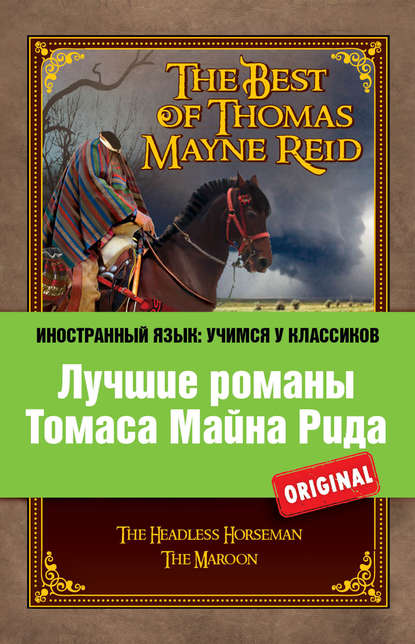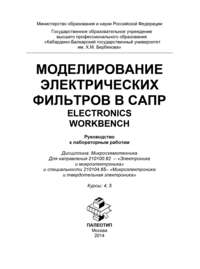
Полная версия
75 лучших рассказов / 75 Best Short Stories
Doubtless, despite his suffering, he had fallen asleep while walking, for now he sees another scene – perhaps he has merely recovered from a delirium[62]. He stands at the gate of his own home. All is as he left it, and all bright and beautiful in the morning sunshine. He must have traveled the entire night. As he pushes open the gate and passes up the wide white walk, he sees a flutter of female garments; his wife, looking fresh and cool and sweet, steps down from the veranda to meet him. At the bottom of the steps she stands waiting, with a smile of ineffable joy, an attitude of matchless grace and dignity. Ah, how beautiful she is! He springs forwards with extended arms. As he is about to clasp her he feels a stunning blow upon the back of the neck; a blinding white light blazes all about him with a sound like the shock of a cannon – then all is darkness and silence!
Peyton Farquhar was dead; his body, with a broken neck, swung gently from side to side beneath the timbers of the Owl Creek bridge.
An Heiress from Redhorse (Ambrose Bierce)
Coronado, June 20th
I find myself more and more interested in him. It is not, I am sure, his – do you know any noun corresponding to the adjective ‘handsome’? One does not like to say ‘beauty’ when speaking of a man. He is handsome enough, heaven knows; I should not even care to trust you with him – faithful of all possible wives that you are – when he looks his best, as he always does. Nor do I think the fascination of his manner has much to do with it. You recollect that the charm of art inheres in that which is indefinable, and to you and me, my dear Irene, I fancy there is rather less of that in the branch of art under consideration than to girls in their first season. I fancy I know how my fine gentleman produces many of his effects, and could, perhaps, give him a pointer on heightening them. Nevertheless, his manner is something truly delightful. I suppose what interests me chiefly is the man’s brains. His conversation is the best I have ever heard, and altogether unlike anyone’s else. He seems to know everything, as, indeed, he ought, for he has been everywhere, read everything, seen all there is to see – sometimes I think rather more than is good for him – and had acquaintance with the QUEEREST people. And then his voice – Irene, when I hear it I actually feel as if I ought to have PAID AT THE DOOR, though, of course, it is my own door.
July 3d
I fear my remarks about Dr. Barritz must have been, being thoughtless, very silly, or you would not have written of him with such levity, not to say disrespect. Believe me, dearest, he has more dignity and seriousness (of the kind, I mean, which is not inconsistent with a manner sometimes playful and always charming) than any of the men that you and I ever met. And young Raynor – you knew Raynor at Monterey[63] – tells me that the men all like him, and that he is treated with something like deference everywhere. There is a mystery, too – something about his connection with the Blavatsky people[64] in Northern India. Raynor either would not or could not tell me the particulars. I infer that Dr. Barritz is thought – don’t you dare to laugh at me – a magician! Could anything be finer than that? An ordinary mystery is not, of course, as good as a scandal, but when it relates to dark and dreadful practices – to the exercise of unearthly powers – could anything be more piquant? It explains, too, the singular influence the man has upon me. It is the indefinable in his art – black art. Seriously, dear, I quite tremble when he looks me full in the eyes with those unfathomable orbs of his, which I have already vainly attempted to describe to you. How dreadful if we have the power to make one fall in love! Do you know if the Blavatsky crowd have that power – outside of Sepoy?[65]
July 1
The strangest thing! Last evening while Auntie was attending one of the hotel hops (I hate them) Dr. Barritz called. It was scandalously late – I actually believe he had talked with Auntie in the ballroom, and learned from her that I was alone. I had been all the evening contriving how to worm out of him the truth about his connection with the Thugs[66] in Sepoy, and all of that black business, but the moment he fixed his eyes on me (for I admitted him, I’m ashamed to say) I was helpless, I trembled, I blushed, I – O Irene, Irene, I love the man beyond expression, and you know how it is yourself!
Fancy! I, an ugly duckling from Redhorse – daughter (they say) of old Calamity Jim – certainly his heiress, with no living relation but an absurd old aunt, who spoils me a thousand and fifty ways – absolutely destitute of everything but a million dollars and a hope in Paris – I daring to love a god like him! My dear, if I had you here, I could tear your hair out with mortification.
I am convinced that he is aware of my feeling, for he stayed but a few moments, said nothing but what another man might have said half as well, and pretending that he had an engagement went away. I learned to-day (a little bird told me – the bell bird) that he went straight to bed. How does that strike you as evidence of exemplary habits?
July 17th
That little wretch, Raynor, called yesterday, and his babble set me almost wild. He never runs down – that is to say, when he exterminates a score of reputations, more or less, he does not pause between one reputation and the next. (By the way, he inquired about you, and his manifestations of interest in you had, I confess, a good deal of vraisemblance[67].)
Mr. Raynor observes no game laws; like Death (which he would inflict if slander were fatal) he has all seasons for his own. But I like him, for we knew one another at Redhorse when we were young and true-hearted and barefooted. He was known in those far fair days as ‘Giggles,’ and I – O Irene, can you ever forgive me? – I was called ‘Gunny.’ God knows why; perhaps in allusion to the material of my pinafores; perhaps because the name is in alliteration with ‘Giggles,’ for Gig and I were inseparable playmates, and the miners may have thought it a delicate compliment to recognize some kind of relationship between us.
Later, we took in a third – another of Adversity’s brood, who, like Garrick[68] between Tragedy and Comedy, had a chronic inability to adjudicate the rival claims (to himself) of Frost and Famine. Between him and the grave there was seldom anything more than a single suspender and the hope of a meal which would at the same time support life and make it insupportable. He literally picked up a precarious living for himself and an aged mother by ‘chloriding the dumps,’ that is to say, the miners permitted him to search the heaps of waste rock for such pieces of “pay ore” as had been overlooked; and these he sacked up and sold at the Syndicate Mill[69]. He became a member of our firm – ‘Gunny, Giggles, and Dumps,’ thenceforth – through my favor; for I could not then, nor can I now, be indifferent to his courage and prowess in defending against Giggles the immemorial right of his sex to insult a strange and unprotected female – myself. After old Jim struck it in the Calamity, and I began to wear shoes and go to school, and in emulation Giggles took to washing his face, and became Jack Raynor, of Wells, Fargo & Co., and old Mrs. Barts was herself chlorided to her fathers, Dumps drifted over to San Juan Smith and turned stage driver, and was killed by road agents, and so forth.
Why do I tell you all this, dear? Because it is heavy on my heart. Because I walk the Valley of Humility. Because I am subduing myself to permanent consciousness of my unworthiness to unloose the latchet of Dr. Barritz’s shoe. Because – oh, dear, oh, dear – there’s a cousin of Dumps at this hotel! I haven’t spoken to him. I never had any acquaintance with him, but – do you suppose he has recognized me? Do, please, give me in your next your candid, sure – enough opinion about it, and say you don’t think so. Do you think He knows about me already and that is why He left me last evening when He saw that I blushed and trembled like a fool under His eyes? You know I can’t bribe ALL the newspapers, and I can’t go back on anybody who was good to Gunny at Redhorse – not if I’m pitched out of society into the sea. So the skeleton sometimes rattles behind the door. I never cared much before, as you know, but now – NOW it is not the same. Jack Raynor I am sure of – he will not tell him. He seems, indeed, to hold him in such respect as hardly to dare speak to him at all, and I’m a good deal that way myself. Dear, dear! I wish I had something besides a million dollars! If Jack were three inches taller I’d marry him alive and go back to Redhorse and wear sackcloth again to the end of my miserable days.
July 25th
We had a perfectly splendid sunset last evening, and I must tell you all about it. I ran away from Auntie and everybody, and was walking alone on the beach. I expect you to believe, you infidel! that I had not looked out of my window on the seaward side of the hotel and seen him walking alone on the beach. If you are not lost to every feeling of womanly delicacy you will accept my statement without question. I soon established myself under my sunshade and had for some time been gazing out dreamily over the sea, when he approached, walking close to the edge of the water – it was ebb tide. I assure you the wet sand actually brightened about his feet! As he approached me, he lifted his hat, saying: ‘Miss Dement, may I sit with you? – or will you walk with me?’
The possibility that neither might be agreeable seems not to have occurred to him. Did you ever know such assurance? Assurance? My dear, it was gall, downright GALL! Well, I didn’t find it wormwood, and replied, with my untutored Redhorse heart in my throat: ‘I–I shall be pleased to do ANYTHING.’ Could words have been more stupid? There are depths of fatuity in me, friend o’ my soul, which are simply bottomless!
He extended his hand, smiling, and I delivered mine into it without a moment’s hesitation, and when his fingers closed about it to assist me to my feet, the consciousness that it trembled made me blush worse than the red west. I got up, however, and after a while, observing that he had not let go my hand, I pulled on it a little, but unsuccessfully. He simply held on, saying nothing, but looking down into my face with some kind of a smile – I didn’t know – how could I? – whether it was affectionate, derisive, or what, for I did not look at him. How beautiful he was! – with the red fires of the sunset burning in the depths of his eyes. Do you know, dear, if the Thugs and Experts of the Blavatsky region have any special kind of eyes? Ah, you should have seen his superb attitude, the godlike inclination of his head as he stood over me after I had got upon my feet! It was a noble picture, but I soon destroyed it, for I began at once to sink again to the earth. There was only one thing for him to do, and he did it; he supported me with an arm about my waist.
Конец ознакомительного фрагмента.
Текст предоставлен ООО «Литрес».
Прочитайте эту книгу целиком, купив полную легальную версию на Литрес.
Безопасно оплатить книгу можно банковской картой Visa, MasterCard, Maestro, со счета мобильного телефона, с платежного терминала, в салоне МТС или Связной, через PayPal, WebMoney, Яндекс.Деньги, QIWI Кошелек, бонусными картами или другим удобным Вам способом.
Примечания
1
bungalows – a bungalow is a small one-storied house with a veranda
2
Norfolk – a historic county on the North Sea coast in eastern England
3
Norwich – a city in Norfolk; the first settlement was founded in Saxon times; in the 12th century, in the times of the Danes, and later, after the Norman Conquest, Norwich became an important market centre.
4
Brownie – in English and Scottish folklore, a small fairy, a mythical being that inhabited houses and barns
5
talisman – an object acting as a charm to bring good fortune and avert evil
6
chariot – an open vehicle of ancient times with two or four wheels; it originated in about 3000 BC in Mesopotamia.
7
calico – a cotton fabric with simple design, first made in Calicut, India, in the 11th century
8
castanet – a musical instrument of a clapper type consisting of two pieces hinged by a cord, usually held in the hand and used by dancers in Spain and some parts of Italy
9
elfish – in Germanic folklore, an elf is a spirit in a tiny human form; it usually causes disease and brings mischief.
10
s’prise = surprise
11
Lord Mayor – the title given to the mayor of London or some other large city
12
Ohio – the US state in the Midwest (106 125 sq. km), joined the USA after the American Revolutionary War in 1783
13
Indiana – the US state in the Midwest (93 491 sq. km), joined the USA after the American Revolutionary War
14
Sandusky – a city on Lake Erie in northern Ohio, founded by the British in 1745
15
Lake Erie – one of the five Great Lakes on the USA-Canadian border
16
Wapping – an area in eastern London
17
the old Globe Theatre – a theatre built in 1599 on the south bank of the Thames and famous for the performance of the greatest Shakespeare’s plays; it remained in use until 1644.
18
Covent Garden – 1) London’s wholesale flower, fruit and vegetable market in central London at the time when the story was written; 2) the Royal Opera House which is near the place where the market used to be.
19
the Strand – the street in central London linking the West End and the City of London
20
Waterloo Station – a main line railway station in London
21
hors de combat – disabled due to the wound or injury
22
K. C. – King’s Counsel
23
Kingsway – a street in central London where companies’ offices are located
24
the Aldwych Theatre – a theatre on the corner of Drury Lane in the West End, built in 1905
25
Lancashire – a county in northwestern England
26
Bakkan – a province and city in Vietnam
27
M. P. – Member of Parliament
28
Chancery Lane – a street in central London where lawyers’ offices are located
29
the Law Courts – the main building of the House of Justice where all important judicial decisions are adopted
30
New Oxford Street – a street in central London, the shopping centre of the city
31
Lincoln’s Inn Fields – a street in central London
32
inamorata = sweetheart, beloved (Italian)
33
Knightsbridge – an area in west-central London with expensive jewellers’ and antique shops
34
sine qua non – necessary conditions (Latin)
35
St. George and his Dragon – a Christian martyr of the 3d century and the patron saint of England; St. George saved a Libyan king’s daughter from the dragon and killed the monster in return for the promise that the people of Libya would be baptized.
36
cromlechs – in prehistoric architecture, a cromlech is an acircle of stones enclosed by a broad rampant
37
Cornwall – a historic county on the Atlantic coast in southwestern England
38
St. Yves – a coastal town in Cornwall
39
Wesleyanism – the Wesleyan church, one of the Protestant churches, founded by John Wesley (1703–1791), a clergyman and church reformer; the members of the Wesleyan church promise to live a sinless life.
40
Sarah – a biblical figure, in the Old Testament, the wife of Abraham and the mother of Isaac
41
Abraham – in the Old Testament, the first of the Hebrew patriarchs, revered in Judaism, Christianity and Islam
42
Hagar – in the Old Testament, Sarah’s maid and Abraham’s mistress, the mother of his illegitimate son, Ishmael
43
Britannia metal – the alloy composed of tin, antimony and copper, used for making household utensils
44
Penzance – a town in Cornwall where the English Channel joins the Atlantic Ocean
45
escutcheon – a metal plate placed on a wooden article either to decorate it or to protect the wood
46
chartreuse – the liqueur made from more than 130 different plants by the monks of La Grande Chartreuse in France
47
Derby – one of the most famous English horse races, an annual event since 1730; the Derby is run on the first Saturday of June.
48
cheroot – a thin cigar open at both ends
49
claret – famous Bordeaux wine made since Roman times in the region around the city of Bordeaux in France; the word claret is not used in modern French.
50
hansom – a low two-wheeled open carriage with the elevated driver’s seat
51
West Kensington – a fashionable district in central London
52
W. – West
53
brougham – a four-wheeled one-horse carriage designed in 1838 by Henry Brougham, a former lord chancellor of England
54
kept me on tenter-hooks – idiom kept me in a state of anxiety
55
Alabama – the US state in the south (131 334 sq. km); the first Europeans who came there were the Spanish, the first settlement was founded by the French in 1701; after the war of 1763, the territory was ceded to England.
56
the Federal army – the army of the federal government in the American Civil War of 1861–1865 with 11 Southern states
57
the Southern cause – the southern states seceded from the Union in 1860–1861; the Northern and the Southern states had different economies, different attitude to slavery, trade and the very idea of states’ rights.
58
Corinth – a city in northeastern Mississippi; the bloody battle took place to the north of the city during the American Civil War.
59
the Yanks – Yankees, a nickname of the citizens of New England states; the word was used by Southerners for Northerners and Federal soldiers during the American Civil War.
60
Niagara – Niagara Falls on the Niagara River in northeastern North America, on the USA-Canadian border
61
Aeolian harps – Aeolian harp is a musical instrument in which sound is produced by the movement of the wind over the strings; in Greek mythology, Aeolus is the god of the winds.
62
delirium – mental state marked by confused thinking, hallucinations, etc. as a result of the intoxication of the brain caused by fever or some other physical disorder
63
Monterey – a city in California, 135 km south of San Francisco; the first Europeans in the region were the Spanish in 1542.
64
the Blavatsky people – followers of Helena Blavatsky (1831–1891), an occultist and spiritualist; she founded the Theosophical Society to promote theosophy (divine wisdom), a philosophical-religious system.
65
Sepoy – 1) a place in India; 2) an Indian soldier in the service of the British India Company.
66
the Thugs – members of the Indian organization of professional assassins who travelled throughout the country for several cen-turies since 1356
67
vraisemblance = love of truth (French)
68
Garrick – David Garrick (1717–1779), a famous English actor, producer and dramatist, one of the managers of the Drury Lane Theatre in London
69
the Syndicate Mill – a mill belonging to the Syndicate, an association of racketeers in control of organized crime in the USA












